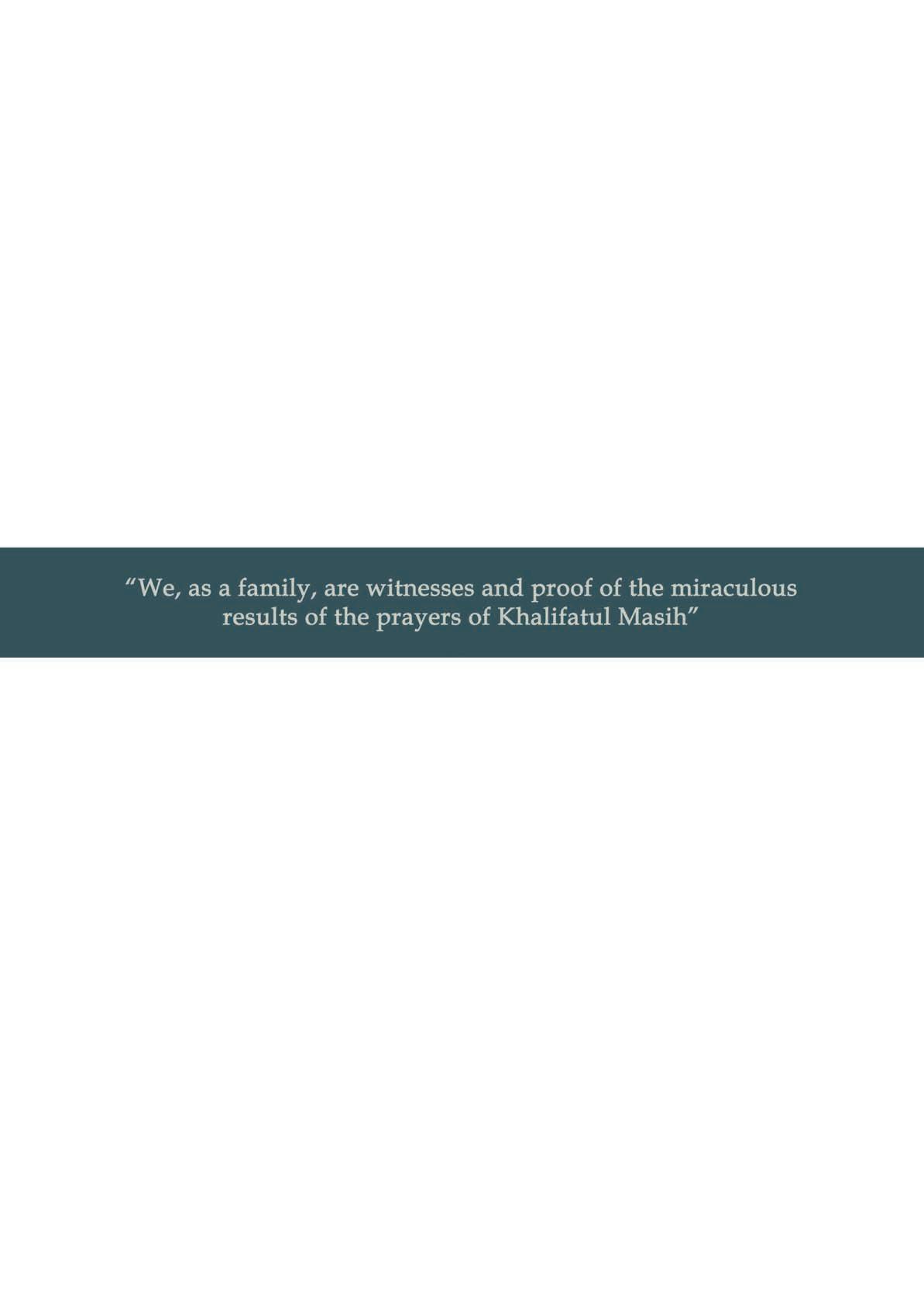
4 minute read
Personal Reflections with Khilafat



The Grinding Wheel
Taken from ‘Points to Ponder’ p.52, by Hazrat Mirza Bashiruddin Mahmud Ahmad, Khalifatul Masih IIra

Intelligence and knowledge are separate and different from each other. Knowledge is a good thing to have but knowledge is worthless without intelligence. There was a king. He called for a renowned astrologer of his kingdom. The king put his son in the custody of the astrologer. The king directed the astrologer to teach his son the knowledge of astrology.
The astrologer took the son of the king to his home and educated him. After teaching him all he knew about astrology, he brought him to the king, and said: “Your Excellency, the King! I have taught him all the knowledge of astrology. If you like, you can give him a test.” The king hid the diamond of his ring in his hand and asked the boy, “Using your knowledge of astrology, tell me what is in my hand.” The boy calculated and said, “The grinding wheel of a mill.” The king looked towards the astrologer and said, “What did you teach him?” He said, “Sir, the grinding wheel of a mill is made of stone and a diamond also is a stone. My knowledge is correct but if your son does not have the intelligence to realize that a mill’s grinding wheel cannot fit in your hand then what can I do? My knowledge is accurate.” I have related a joke many a time on the same lines, which I have heard from Maulānā Nūrud-Dīn.
The elders of a village sent a boy to learn medicine in some other land because there was no physician in the village. They thought that when the boy returns after learning, their needs will be met, and the day-to-day inconvenience they had for the lack of a physician will go away.
The boy reached a renowned physician in another part and said, “The elders of my area have sent me to learn medicine because we do not have a physician.” The physician said, “That is commendable. What can be better than service with medicine as one gets to serve the community, and people also benefit. This task is of great blessing. Stay with me and I will teach you everything about medicine.” The boy took residence with him. The very next day, the physician went to see a patient. He took the boy with him. When they arrived at the patient’s house, they
sat down. The physician checked patient’s pulse, asked about his condition and in the course of the conversation, asked, “Did you, per chance, eat garbanzos yesterday?” The patient replied, “Yes, I ate some garbanzos.” The physician said, “Your stomach is weak; you cannot digest such hard food. This is the cause of your stomach-ache; you should not eat such things.” Then the physician wrote the patient a prescription and they came home. Upon arrival, the boy said, “Please give me permission to go back.” The physician said, “That quick! You had come to learn medicine.” The boy answered, “I have learned the medicine. It is not very difficult for an intelligent person.” The physician said, “I have not even given you one lesson. Where did you learn the medicine from?” The boy said, “Intelligent people do not need any lessons. By the grace of God, I am intelligent, and I have learned all the medicine.” The physician tried to convince him that he should stay longer and study medicine in a disciplined way, but the boy did not agree and went back. People of his town were surprised to see him back so soon. He said, “It is not difficult for an intelligent person to learn medicine. And I learned the medicine right upon arrival there.”

Anyhow, a rich person fell ill and called the boy for treatment. The boy felt the pulse, asked about the condition and then said, “You are a rich person. How can you digest such things? Tell me, did you eat horse’s straps?” The patient said, “What stupid things you are saying, does anyone eat horse’s straps?” The boy said, “Whether you accept it or not you did eat horse’s straps.” When the servants saw that he was putting down their master, they beat him up. They continued beating him up and he continued insisting that his diagnosis was correct whether they believed him or not.
Finally, they asked him what he meant. He said, “The matter is so because the physician I learned medicine from went to see a patient. I examined his movements carefully. I saw that the physician looked around and picked up the few garbanzo beans fallen under the bed and played with them and then said to the patient that it seemed that he had eaten the garbanzos. He accepted that in reality he had eaten garbanzos. I understood immediately that when you have to go to see a patient you should look under his bed. And whatever you see under the bed, you should imagine that he got sick by eating that. When I came here and looked under his bed, I saw the strap of the horse so I understood that he had become sick due to eating that strap of the horse.” The thing which he thought was intelligence. In reality that was stupidity and idiocy.








